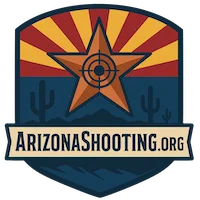Are there two pieces of legislation in that period that have been more important than those two court cases? I can't think of any.
Hate to use Wiki as a source, but here it is:
Non-party involvement
National Rifle Association (NRA)
Attorney Alan Gura, in a 2003 filing, used the term "sham litigation" to describe the NRA's attempts to have Parker (aka Heller) consolidated with its own case challenging the D.C. law. Gura also stated that "the NRA was adamant about not wanting the Supreme Court to hear the case".[55] These concerns were based on NRA lawyers' assessment that the justices at the time the case was filed might reach an unfavorable decision.[56] Cato Institute senior fellow Robert Levy, co-counsel to the Parker plaintiffs, has stated that the Parker plaintiffs "faced repeated attempts by the NRA to derail the litigation."[57] He also stated that "The N.R.A.'s interference in this process set us back and almost killed the case. It was a very acrimonious relationship."[6]
Wayne LaPierre, the NRA's chief executive officer, confirmed the NRA's misgivings. "There was a real dispute on our side among the constitutional scholars about whether there was a majority of justices on the Supreme Court who would support the Constitution as written," Mr. LaPierre said.[6] Both Levy and LaPierre said the NRA and Mr. Levy's team were now on good terms.[6]
Elaine McArdle wrote in the Harvard Law Bulletin: "If Parker is the long-awaited "clean" case, one reason may be that proponents of the individual-rights view of the Second Amendment – including the National Rifle Association, which filed an amicus brief in the case – have learned from earlier defeats, and crafted strategies to maximize the chances of Supreme Court review." The NRA did eventually support the litigation by filing an amicus brief with the Court arguing that the plaintiffs in Parker had standing to sue and that the D.C. ban was unconstitutional under the Second Amendment.[58]
Chris Cox, executive director of the NRA's Institute for Legislative Action, had indicated support of federal legislation which would repeal the D.C. gun ban. Opponents of the legislation argued that this would have rendered the Parker case moot, and would have effectively eliminated the possibility that the case would be heard by the Supreme Court.[59]
https://en.wikipedia.org/wiki/District_of_Columbia_v._Heller



